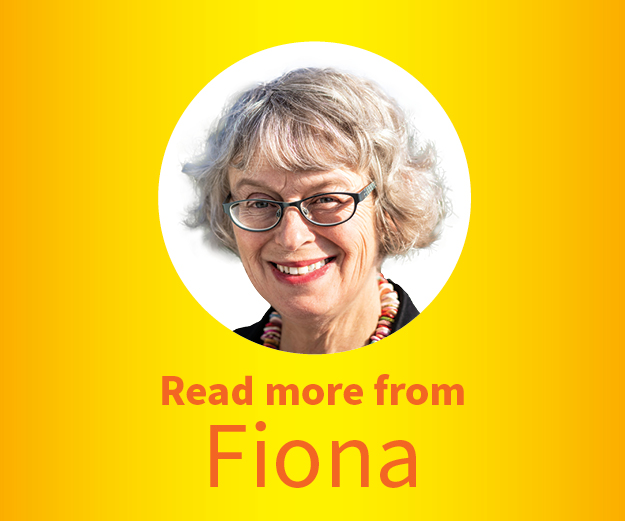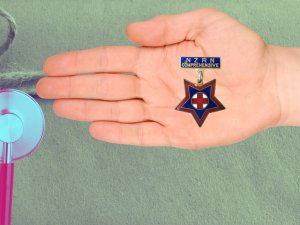Respiratory physician Lutz Beckert considers chronic obstructive pulmonary disease management, including the prevention of COPD, the importance of smoking cessation and pulmonary rehabilitation, and the lifesaving potential of addressing treatable traits. He also discusses the logic of inhaler therapy, moving from single therapy to dual and triple therapy when indicated, as well as other aspects of management
Resthomes to residency: A GP’s 15-year fight to work in Aotearoa
Resthomes to residency: A GP’s 15-year fight to work in Aotearoa

At the start of this year, Pedram Zawarreza became a GP Fellow and a practice owner. The Iran-trained doctor is keen that other migrant doctors have a less torturous path than the 15 years it took him to become a Kiwi specialist GP. Fiona Cassie reports
When the cash ran out, migrant doctor Pedram Zawarreza opted to be a health care assistant in Christchurch resthomes.
The status didn’t bother him; Dr Zawarreza came from a working-class background in his native Iran, and his patients were bemused but supportive of their doctor carer.
“They were praying for me to pass my exams. It was lovely of them,” Dr Zawarreza says.
This was back in the early days of the 15 years of hurdles, quakes, detours and crashes he faced on his road to becoming first a registered doctor, then a specialist GP as an international medical graduate from a “non-comparable” health system like Iran.
Now, having achieved his GP fellowship, Dr Zawarreza is reluctant to be celebrated. He points to survivorship bias – the tendency to pay attention to those who pass or survive a selection process while overlooking those who do not. He’d like more thought given to the international medical graduate (IMG) doctors who avoid coming to New Zealand in the first place, those who come but fall at one of the many registration hurdles or those who cross the Tasman after discovering the Australian path is shorter.
Dr Zawarreza says he’d have been in Australia long ago if he hadn’t met his Kiwi wife Ruth Meskill soon after arriving. They now have a nine-year-old son and are committed to making New Zealand their home.
He doesn’t regret becoming a Kiwi GP – he has learnt a lot from his patients through his GP training and is grateful for the support from “amazing GP colleagues” and supportive hospital specialists.
However, he does regret some of the traumatic experiences he had during his GP fellowship training. Dr Zawarreza has not been shy about speaking up when he felt he has not been treated fairly.
Sometimes, perhaps oblivious to the unwritten rules of the Kiwi workplace, he has “made a fuss” where others might just box on and get on with it. That has caused discomfort for some and has seen him take complaints to mediation in some cases.
More robust systems are needed, he argues, to ensure all GP registrars, not just IMGs, avoid unsuitable or unsafe training practices on their path to a very satisfying career. He feels the RNZCGP could do better.
“Being a GP is fantastic because you look after your patient not only as a patient but as a human being.
“It’s a reciprocal relationship – you look after your patient, and they look after you.” For example, one of Dr Zawarreza’s Māori patients helped him with the final hurdle to gaining his fellowship – improving his te reo pronunciation and cultural knowledge.
So that’s why people don’t submit complaints because they don’t want to get into trouble
Dr Zawarreza started the year by gaining his GP fellowship and becoming a general practice co-owner at Hornby Medical Centre, Christchurch.
His journey to becoming a Kiwi GP started in Iran’s capital, Tehran, where he grew up and studied medicine, graduating in 2005. After working two years as a family doctor for the navy to complete his compulsory military service, he left Iran in 2008 seeking a better life. New Zealand was his choice as his brother is a data scientist at the University of Canterbury. He arrived in Christchurch on a three-month visitor visa but soon after got a student visa. He considered pursuing a PhD – research remains a passion – before deciding to return to medicine.
At that point, he knew little to nothing about the registration path for IMGs who haven’t trained or worked in one of the 26 comparable health systems recognised by the Medical Council, but he was about to become an expert.
Apart from meeting the English language requirements, it took him several attempts to meet the test scores needed at the time. He had to pass one of the four internationally recognised written medical exams before he could apply to sit the council’s New Zealand Registration Exam (NZREX) Clinical.
Christchurch at the time was home to Kaplan Aspect, an English language school in a central-city art deco building operated by American provider Kaplan that, in the US, offered prep courses for the US Medical Licensing Examination. Dr Zawarreza persuaded Kaplan to provide a USMLE programme down under, with him as their first student. That got under way in 2010, the same year he met his wife-to-be, a Kiwi interior designer, and the same year the first of the Canterbury quakes hit.
On the day of the most devastating quake, 22 February 2011, Dr Zawarreza was in Christchurch Hospital’s biochemistry department discussing a possible research project.
“Everything fell out of the shelves… and I was worried that one of the bottles of acid would fall on my head. But I was lucky. I could have been in the city centre…”
Not so lucky was that the quake saw Kaplan permanently close its doors in Christchurch. With the closure, Dr Zawarreza lost his path to sitting USLME and his student visa.
A lawyer advised him and his then-girlfriend to apply for a partnership visa (they married later that year) so he could stay in the country.
Money was tight, though, so he started working as a health care assistant in aged residential facilities to keep funding his quest to become a Kiwi doctor. “It was a tough job, but it helped me a lot actually by improving my English and learning about the health system in New Zealand.”

But working full time while trying to study for his new written exam target, the Australian Medical Council’s multiple-choice question (AMC MCQ) exam, proved to be too tough a combination. He failed two times.
Rather than risk failing again, in 2013, Dr Zawarreza signed up for a six-week course in Melbourne with ARIMGSAS, preparing IMGs for the AMC MCQ exam. Melbourne’s living costs exceeded his budget, so he got permission to return to Christchurch and attend classes by Skype. Hunched over a laptop, he studied all day and much of the night for six weeks with his Melbourne classmates and passed.
The NZREX Clinical exam was the next step. With an average pass rate of 60 per cent and a current cost of more than $5000 (including an $817 application fee), it is not an exam entered lightly. Supporting colleagues to prepare for the scenario-based three-hour practical exam is a major focus of an NZREX Facebook community created in 2011 for IMGs interested in a medical career in New Zealand. It now has 4800 members here and overseas.
With the support of a Facebook colleague, he passed the first pop. Then came the biggest hurdle – the one that has thwarted and tripped many NZREX doctors – getting the PGY1 placement that is your passport to provisional registration.
“I was going to the hospital RMO [resident medical officer] unit every day for a job, and they kept telling me there was no job.” Attempts to find a position elsewhere in the country were also unsuccessful. Six months after passing NZREX, he bumped into the consultant who had helped him get hospital observer status when he was an NZREX candidate and told him he was still jobless. “The next day I got a contract.”
The experience left him grateful but sad that IMGs like himself can be stonewalled from entering the health system without a leg-up.
With a house officer’s job, he finally got his name on the Medical Council register, and in 2014, started at Christchurch Hospital with the long-term aim of “getting into GP land”. But by the time he gained full registration in 2016, he says he still had little idea of the best path to do so. He believes a lack of local inside knowledge as an IMG about the warning signs of the practices to avoid as a trainee GP was partially behind the bad luck he was about to have. “Being a migrant makes you vulnerable,” he says.
In 2018, Dr Zawarreza spotted a practice advertising a GP registrar job and left Christchurch to take up the position. Too late to be part of the RNZCGP’s 2018 GP fellowship training cohort, he applied for the 2019 cohort.
Soon, he had concerns about the practice’s model of care and says he was worried that, as a novice IMG GP still to start official training, he was expected to see some acute same-day patients for just five to six minutes. When he questioned the model’s safety, Dr Zawarreza says he felt bullied. After months of becoming increasingly worried, he sought advice from senior GPs, with at least one advising him to resign.
The next day, he refused to see any patients within five minutes. It culminated in his contract being terminated after an angry verbal lashing and alleged physical pushing in the car park that he says still leaves him traumatised.
The college, which he had also approached with his concerns about the practice, offered him a college-employed registrar position for 2019, he says. He declined, though, as he had already applied for a practice-employed GP registrar position in Christchurch, where his wife and son were still based.
Later, he discovered that a specialist GP, who had also worked at his first practice, had written to the college the previous year saying they weren’t happy with a registrar going there. It left Dr Zawarreza saddened and disappointed that his traumatic first experience with general practice may have been avoidable.
Returning to Christchurch, he officially started his GP fellowship training in 2019, spending two years-plus at one Christchurch practice, during which time the pandemic arrived, before moving to another practice in the city for a further 15 months.
His fourth GP registrar job – at a third Christchurch practice – was short-lived after concerns prompted him to resign after a few months.
Throughout his training, he has not held back from raising concerns or laying complaints when he considers training or practice standards are below par. It has not made his training path simpler, nor has it always made him friends.
“I’m one of the only GP registrars that [have] submitted complaints. I remember my colleagues told me, ‘Pedram don’t submit a complaint, you will get into trouble’, and I think I paid the price for not listening.
“So that’s why people don't submit complaints because they don’t want to get into trouble.”
He doesn’t regret putting his neck out when advised to pull it in, as he is driven by a personal zeal to try to prevent other GP registrars from having poor experiences, he says.
It was a case of fifth time lucky for his last GP registrar employer, specialist GP Lorna Martin, who at the time, was co-owner of the Woodend Medical Centre and Rangiora Family Doctor practices north of Christchurch.
“If, from the beginning, I was just working for Lorna Martin, none of these things would have happened to me,” he says.
Dr Martin, now retired as a GP but continuing as chair of the largely rural-focused Waitaha PHO, describes her former employee and colleague as a “great asset”. Medically, she says his knowledge is good, he is very committed, and he works hard for his patients who give the practice good feedback. “Patients really like to see him and go out of their way to get appointments with him.”
While at Woodend, Dr Zawarreza applied for his fellowship assessment to discover he was not eligible, as the small practice – to be closed and merged with Dr Martin’s and another South Link co-owned Rangiora practice in late 2023 – did not have RNZCGP foundation standards.
It was another hiccup, but he stuck with his Woodend patients rather than leave them early to speed up his fellowship. Dr Martin says when Woodend closed, and Dr Zawarreza shifted to Rangiora, the patients followed him. “Which I think is the biggest compliment you can pay a doctor.”
With fellowship at last in sight, Dr Zawarreza started looking for a practice to buy last year, leading to some locum shifts at Christchurch’s Hornby Medical Centre while he considered buying out one of the GP partners.
“I loved working with them, and they enjoyed working with me, so we realised I was a good fit for the team.” He started full time at the practice in March and “couldn’t be happier”.
He plans to continue a Sunday urgent-care shift at Riccarton Clinic he started in 2024. Last year, he also enrolled in a master’s in medical education at the University of Auckland after discovering he loved teaching medical students during their practice placements. Then, there are the research projects he wants to pursue to help his patients with diabetes.
He appears to be a workaholic.
Working six days a week is normal in Iran, he says. “And I love what I do. The work doesn’t stress me out.”
What does stress him is the risk of other GP registrars, particularly vulnerable IMG doctors, having bad training experiences.
Dr Zawarreza describes as “awesome” the Government’s early March announcement of 100 clinical placements in general practice over the next two years for NZREX doctors. He wants New Zealand to embrace and support IMGs to help boost the GP workforce by providing the mentorship, protection and educational support they need to do so safely.
“We need more doctors, but we need to facilitate their entrance to the medical system; otherwise, you will lose them to Australia and other countries.”
After his 15-year journey to becoming a GP, he wants others who follow him to not just survive but thrive.
We're publishing this article as a FREE READ so it is FREE to read and EASY to share more widely. Please support us and our journalism – subscribe here
One of the benefits of subscribing is you will also be able to share your thoughts about what you read with others in our Comment Stream. You can also take notes on what you read with Capture










![Barbara Fountain, editor of New Zealand Doctor Rata Aotearoa, and Paul Hutchison, GP and senior medical clinician at Tāmaki Health [Image: Simon Maude]](/sites/default/files/styles/thumbnail_cropped_100/public/2025-03/Barbara%20Fountain%2C%20editor%20of%20New%20Zealand%20Doctor%20Rata%20Aotearoa%2C%20and%20Paul%20Hutchison%2C%20GP%20and%20senior%20medical%20clinician%20at%20T%C4%81maki%20Health%20CR%20Simon%20Maude.jpg?itok=-HbQ1EYA)
![Lori Peters, NP and advanced health improvement practitioner at Mahitahi Hauora, and Jasper Nacilla, NP at The Terrace Medical Centre in Wellington [Image: Simon Maude]](/sites/default/files/styles/thumbnail_cropped_100/public/2025-03/2.%20Lori%20Peters%2C%20NP%20and%20advanced%20HIP%20at%20Mahitahi%20Hauora%2C%20and%20Jasper%20Nacilla%2C%20NP%20at%20The%20Terrace%20Medical%20Centre%20in%20Wellington%20CR%20Simon%20Maude.jpg?itok=sUfbsSF1)
![Ministry of Social Development health and disability coordinator Liz Williams, regional health advisors Mary Mojel and Larah Takarangi, and health and disability coordinators Rebecca Staunton and Myint Than Htut [Image: Simon Maude]](/sites/default/files/styles/thumbnail_cropped_100/public/2025-03/3.%20Ministry%20of%20Social%20Development%27s%20Liz%20Williams%2C%20Mary%20Mojel%2C%20Larah%20Takarangi%2C%20Rebecca%20Staunton%20and%20Myint%20Than%20Htut%20CR%20Simon%20Maude.jpg?itok=9ceOujzC)
![Locum GP Helen Fisher, with Te Kuiti Medical Centre NP Bridget Woodney [Image: Simon Maude]](/sites/default/files/styles/thumbnail_cropped_100/public/2025-03/4.%20Locum%20GP%20Helen%20Fisher%2C%20with%20Te%20Kuiti%20Medical%20Centre%20NP%20Bridget%20Woodney%20CR%20Simon%20Maude.jpg?itok=TJeODetm)
![Ruby Faulkner, GPEP2, with David Small, GPEP3 from The Doctors Greenmeadows in Napier [Image: Simon Maude]](/sites/default/files/styles/thumbnail_cropped_100/public/2025-03/5.%20Ruby%20Faulkner%2C%20GPEP2%2C%20with%20David%20Small%2C%20GPEP3%20from%20The%20Doctors%20Greenmeadows%20in%20Napier%20CR%20Simon%20Maude.jpg?itok=B0u4wsIs)
![Rochelle Langton and Libby Thomas, marketing advisors at the Medical Protection Society [Image: Simon Maude]](/sites/default/files/styles/thumbnail_cropped_100/public/2025-03/6.%20Rochelle%20Langton%20and%20Libby%20Thomas%2C%20marketing%20advisors%20at%20the%20Medical%20Protection%20Society%20CR%20Simon%20Maude.jpg?itok=r52_Cf74)
![Specialist GP Lucy Gibberd, medical advisor at MPS, and Zara Bolam, urgent-care specialist at The Nest Health Centre in Inglewood [Image: Simon Maude]](/sites/default/files/styles/thumbnail_cropped_100/public/2025-03/7.%20Specialist%20GP%20Lucy%20Gibberd%2C%20medical%20advisor%20at%20MPS%2C%20and%20Zara%20Bolam%2C%20urgent-care%20specialist%20at%20The%20Nest%20Health%20Centre%20in%20Inglewood%20CR%20Simon%20Maude.jpg?itok=z8eVoBU3)
![Olivia Blackmore and Trudee Sharp, NPs at Gore Health Centre, and Gaylene Hastie, NP at Queenstown Medical Centre [Image: Simon Maude]](/sites/default/files/styles/thumbnail_cropped_100/public/2025-03/8.%20Olivia%20Blackmore%20and%20Trudee%20Sharp%2C%20NPs%20at%20Gore%20Health%20Centre%2C%20and%20Gaylene%20Hastie%2C%20NP%20at%20Queenstown%20Medical%20Centre%20CR%20Simon%20Maude.jpg?itok=Z6u9d0XH)
![Mary Toloa, specialist GP at Porirua and Union Community Health Service in Wellington, Mara Coler, clinical pharmacist at Tū Ora Compass Health, and Bhavna Mistry, specialist GP at Porirua and Union Community Health Service [Image: Simon Maude]](/sites/default/files/styles/thumbnail_cropped_100/public/2025-03/9.%20Mary%20Toloa%2C%20Porirua%20and%20Union%20Community%20Health%20Service%20in%20Wellington%2C%20Mara%20Coler%2C%20T%C5%AB%20Ora%20Compass%20Health%2C%20and%20Bhavna%20Mistry%2C%20PUCHS%20CR%20Simon%20Maude.jpg?itok=kpChr0cc)